Is mildew keeping your plants from being healthy and pretty? You need these Effective Ways to Get Rid of Powdery Mildew!
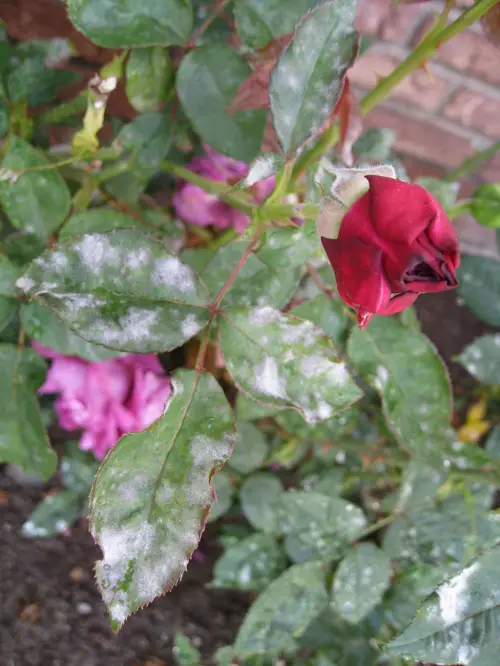
We’ve got many Effective Ways to Get Rid of Powdery Mildew that will help you keep your plants healthy and beautiful. From using natural remedies like baking soda and neem oil to commercial fungicides, we’ve got everything covered. Let’s get started!
What is Powdery Mildew, and Why is it Harmful to Your Plants?
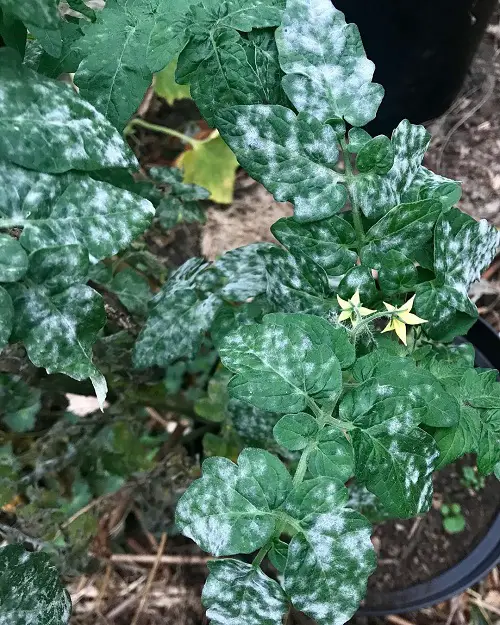
Powdery mildew is a fungal disease that can affect your plants. You can easily identify if your plants have it–it’s characterized by a white, powdery coating on the foliage.
It is common in cities where there is high humidity and can stunt the growth of your plants. Powdery mildew can also reduce the yield of fruits and veggies, so it’s best to take care of it as soon as you see it.
Ways to Get Rid of Powdery Mildew
1. Baking Soda
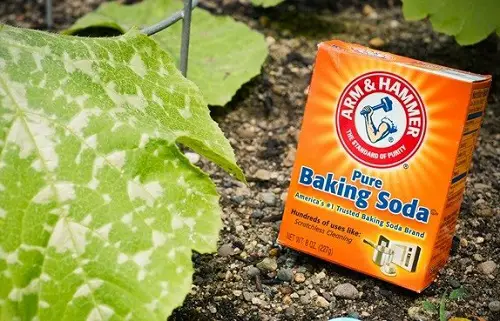
You must have used Baking soda (Potassium Bicarbonate) in the kitchen before, but not in the garden. All in good time. You can use it to make a soda spray. Just mix a tablespoon of baking soda in a gallon of water and add a couple of drops of liquid soap to it.
Mix all of these well and pour it into a spray bottle. Now use it on your affected plants, and after a few sprays, you’ll see that the mildew is reducing, and it will ultimately be gone.
2. Neem Oil
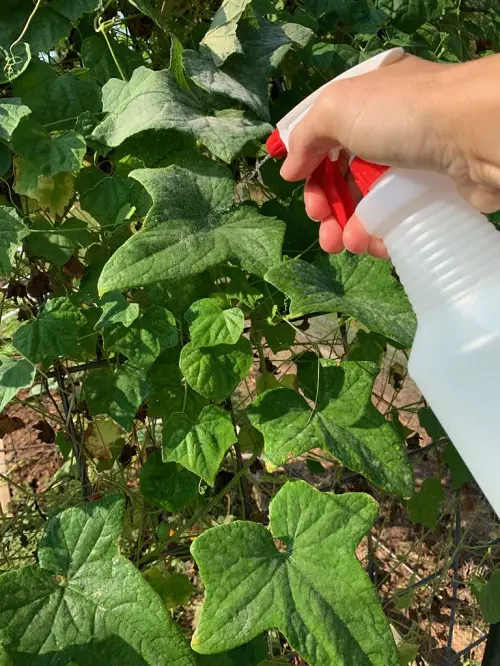
Don’t have Baking soda at hand? Don’t you worry–you can use neem oil. Just replace the portion of Baking soda in the previous recipe with neem oil and use the solution on your plants.
You can use it once a week; it will be more than enough. You can also refer to this video guide on how to use neem oil for powdery mildew.
3. Use Milk
Milk is good for you and it is good for your plants. Take a part of milk and dilute it in 9 parts of water. Mix it well and then use this spray on the affected areas of the plants where you see powdery mildew.
Once you’re done, you should rinse your plants with water so there’s no residue of powdery mildew or milk left. Simple!
4. Use Sulfur
Sulfur is actually a natural fungicide. You can find many Sulfur products on the market with clear instructions and application rates for using them.
The basic idea is–you mix Sulfur powder with a soapy water solution and use it as a spray, just like the other remedies. Here is a detailed guide to help you.
5. Hydrogen Peroxide
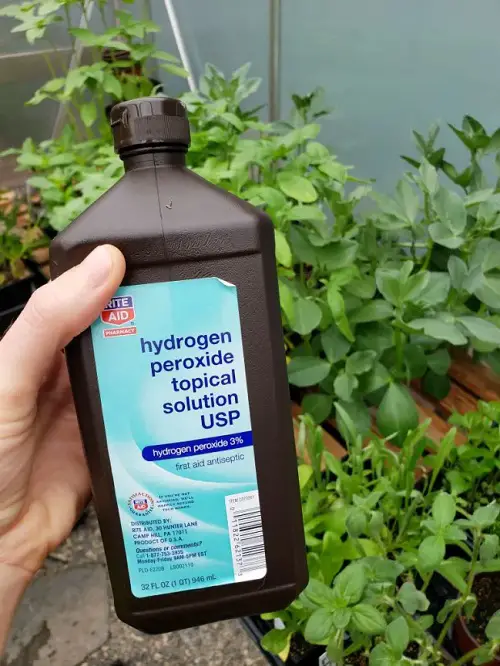
If you’ve got some Hydrogen Peroxide, we can help you get rid of powdery mildew in a jiff. Add a spoonful of it to half a liter of water and let the solution sit for a good 10-15 minutes.
Now use it to rinse your plants and let them dry up. Do it once in about 10 days, and after a couple of applications, all the mildew will be gone. Here is the DIY tutorial.
6. Vinegar Solution
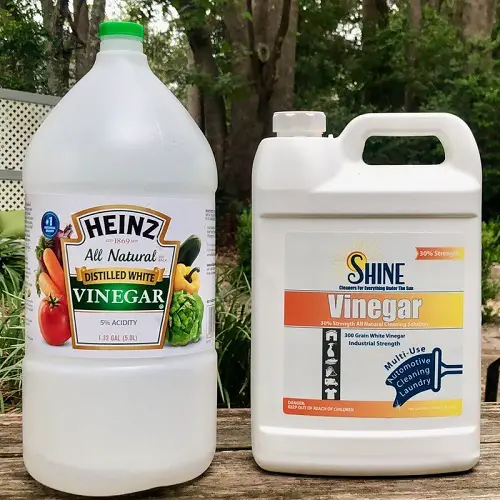
Vinegar is a great way to get rid of powdery mildew. Take a gallon of water and add 2-3 tablespoons of vinegar to it.
Once the solution is ready, spray it on your plants. Vinegar is a slow worker, so you should use it in the evening and let it sit overnight. In the morning, rinse your plants with water, and the mildew will wash right off.
7. Garlic Spray
We don’t expect you to go to the market or have vinegar at hand all the time if mildew appears. You can also use garlic cloves. Crush a handful of these and steep them in hot water for about 20-30 minutes.
8. Commercial Fungicide
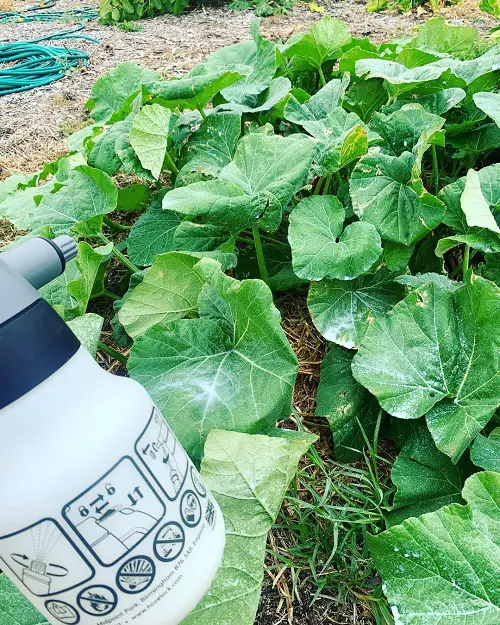
If you’ve tried your hand at the natural remedies, but they work too slowly for you, you can also go with a commercial fungicide. Make sure you choose one that’s labeled for powdery mildew, and wear gloves and goggles while using it.
Here are the best ones you can find in the market and online.
- Monterey LG6135 Garden Insect Spray
- BioAdvanced 706902 Fungus Control
- Bonide Fung-onil Multi-Purpose Fungicide
- GreenCure Fungicide
- Ortho Max Disease Control
9. Apply Compost Tea
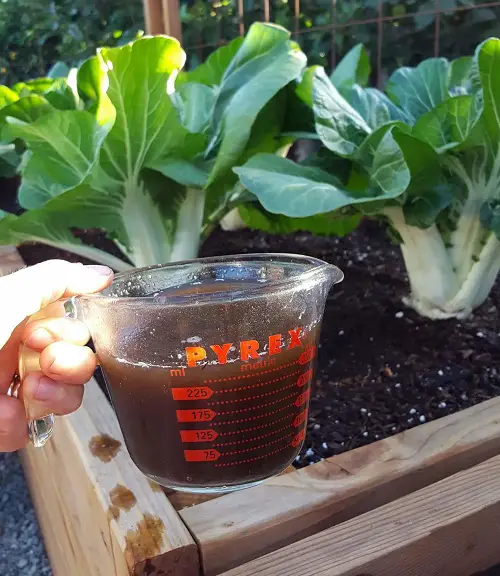
You can also use compost tea for this purpose. Mix a part of the compost with four parts of water and let it sit in a huge bucket.
Don’t touch it for 24 hours so it can seep properly, and then strain the tea to get a solution. Dilute this tea in water and spray it on your plants where you see powdery mildew signs. It can do wonders.


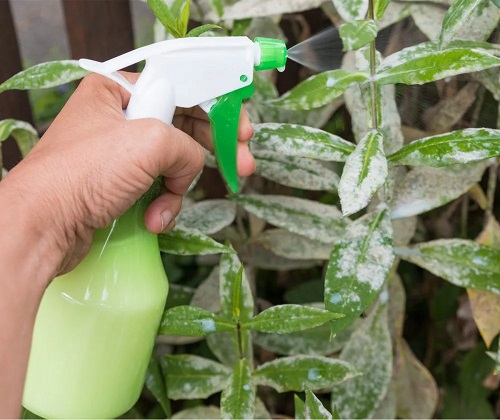
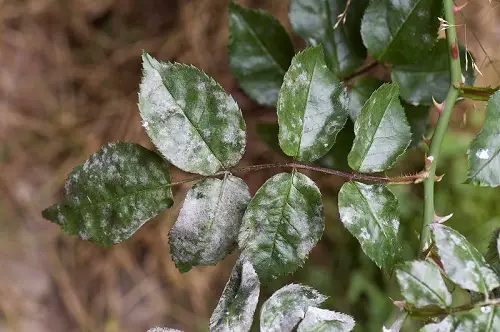


Can I mix any of these remedies. Could I mix to 1 gallon water the ratio mentioned in the article of baking soda sodium bicarbonate, and hydrogen peroxide?